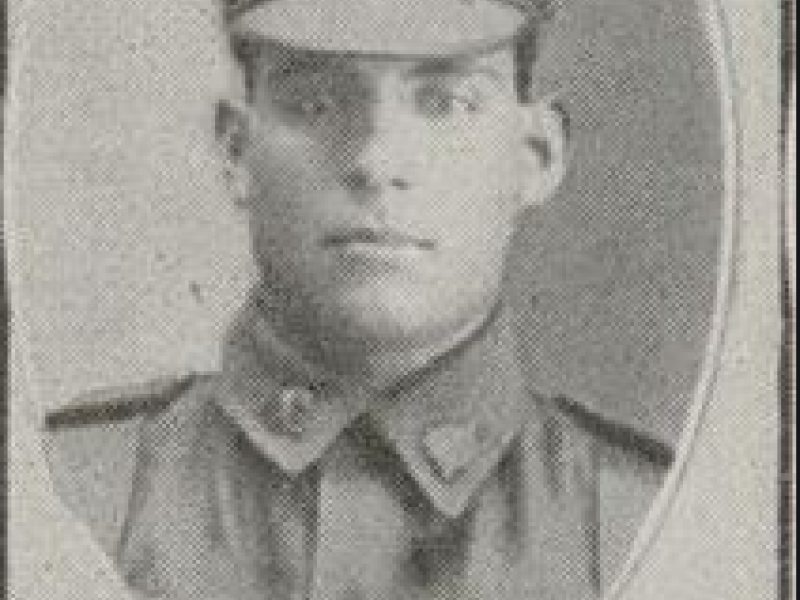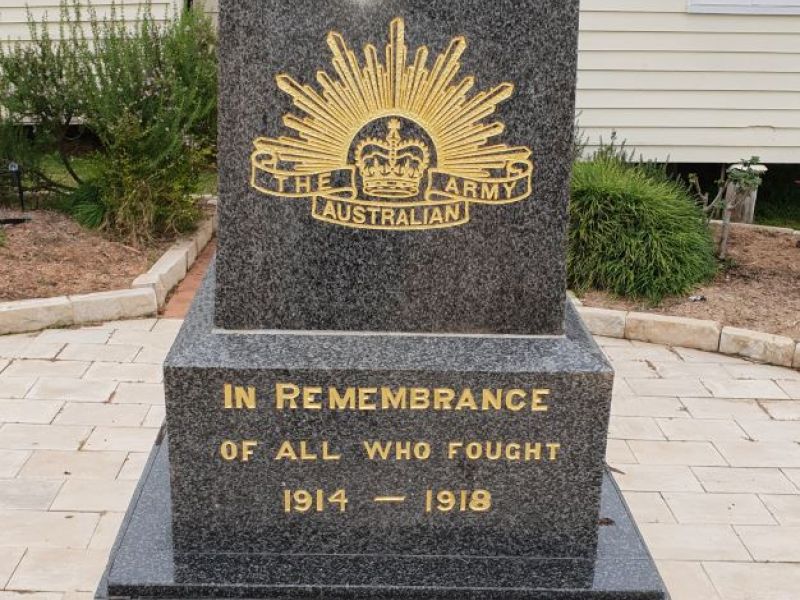Private George Robert Aitken, 52nd Australian Infantry Battalion, AIF
George Aitken, of the Waka Waka Nation, was born on 5 November 1893 at Walloon Station, near Taroom in south-east Queensland.
His father was George Richard Aitken, a manager at Cania Station, at nearby Eidsvold, and his mother, “Princess”, was an Aboriginal woman from the Barambah Mission Station.
Barambah was established by the Salvation Army in the 1870s; the Queensland government took control in 1905. Conditions were poor, and residents lacked adequate housing, sanitation, education and medical facilities.
Despite the high death rate, Barambah grew due to large numbers of forcibly moved Aboriginal people to the mission.
While his mother remained at Barambah, young George was raised at Eidsvold by Thomas and Mary Hampson. He grew up with their daughter Lily and her three brothers Newton, Thomas and Dennis (“Dan”), and worked as a stockman.
On 5 April 1916, George and Dan enlisted in the Australian Imperial Force. They were allotted to reinforcements to the 52nd Battalion, and embarked from Brisbane on the Seang Choon on 19 September.
Dan Hampson joined the 47th Battalion in France in mid-February 1917.
George Aitken, however, did not go with him. On 13 January, he was charged with disobeying an order, and later, assaulting a lance corporal.
A few weeks later, Aitken was court-martialled. Despite pleading not guilty to both charges, he was convicted and sentenced to two years hard labour. Shortly after, it was commuted to 12 months detention and forfeiture of pay.
On 21 June 1917, Aitken was released; the remaining six months of his sentence remitted, and he finally joined the 52nd Battalion on 22 July 1917.
In early October, the 1st, 2nd and 3rd Australian Divisions captured Broodseinde Ridge, a vital victory. But then it began to rain.
On 12 October, troops attempted to take Passchendaele Ridge. Under heavy fire and in wretched, waterlogged conditions, the men fought in the mud. Finally, with casualties mounting at an appalling rate, the Australians had to fall back.
A week later, on 19 October, Aitken was with C Company in the front line at Broodseinde Ridge, conducting working and carrying parties. They were about to be relieved when they came under heavy shell-fire, including a gas attack, that caused heavy casualties.
Among the dead was George Aitken. He was 23 years old.
Aitken’s gravesite was never recovered, and today he is commemorated at the Menin Gate Memorial at Ypres, along with over 54,000 soldiers who died in the area with no known grave.
George’s will was informal, set out in a letter to his adoptive brother, Dan, a part of which read:
“Well, Dan, I can safely say that we are the only two true mates there are in the world. That’s a big word to say. Well, Dan, if I gets knocked you can have anything you can find on me that is any use to you, and my allotted money to be left to Mrs Hampson. Show this to one of the heads; don’t forget.”
Duncan Beard, Editor, Military History Section
- Australian War Memorial https://www.awm.gov.au/collection/C2647728

 Australian War Memorial
Australian War Memorial